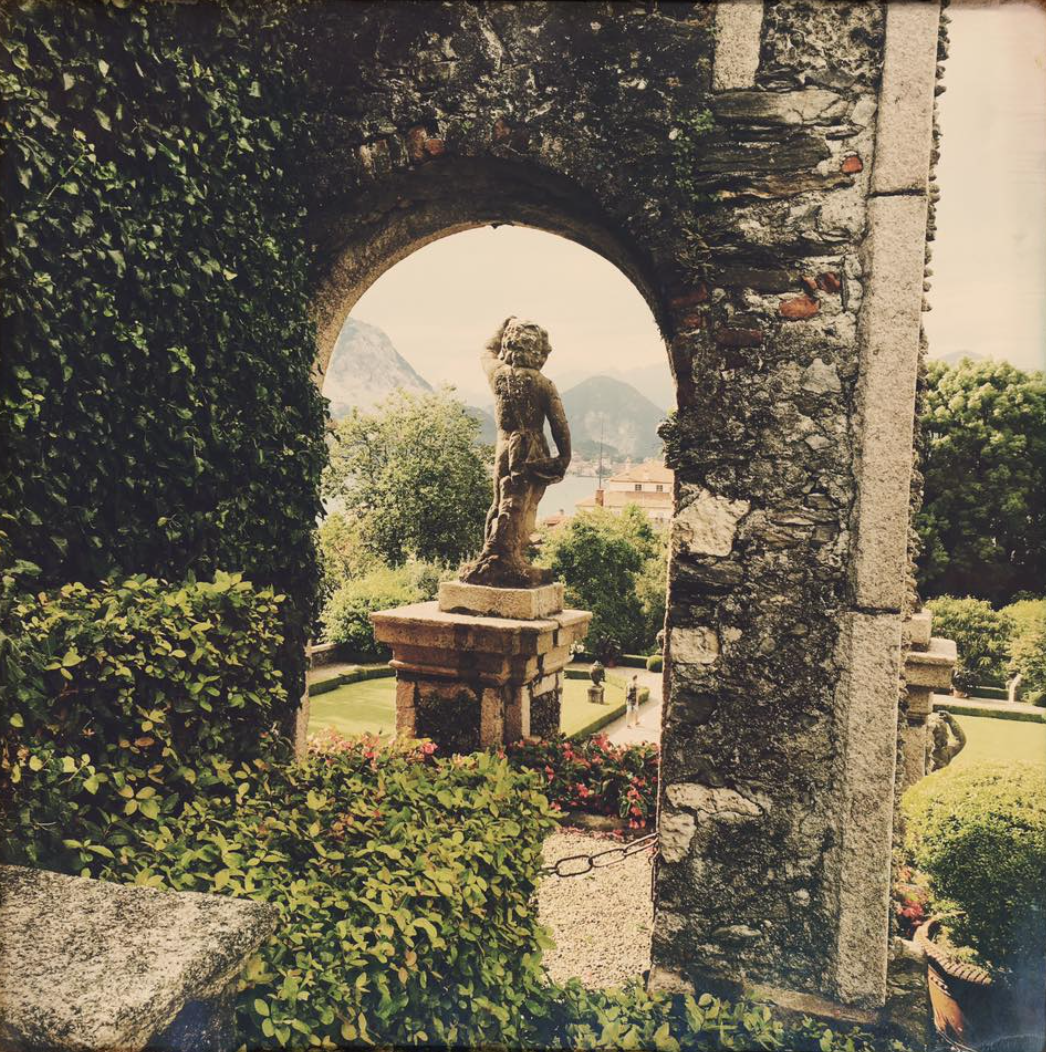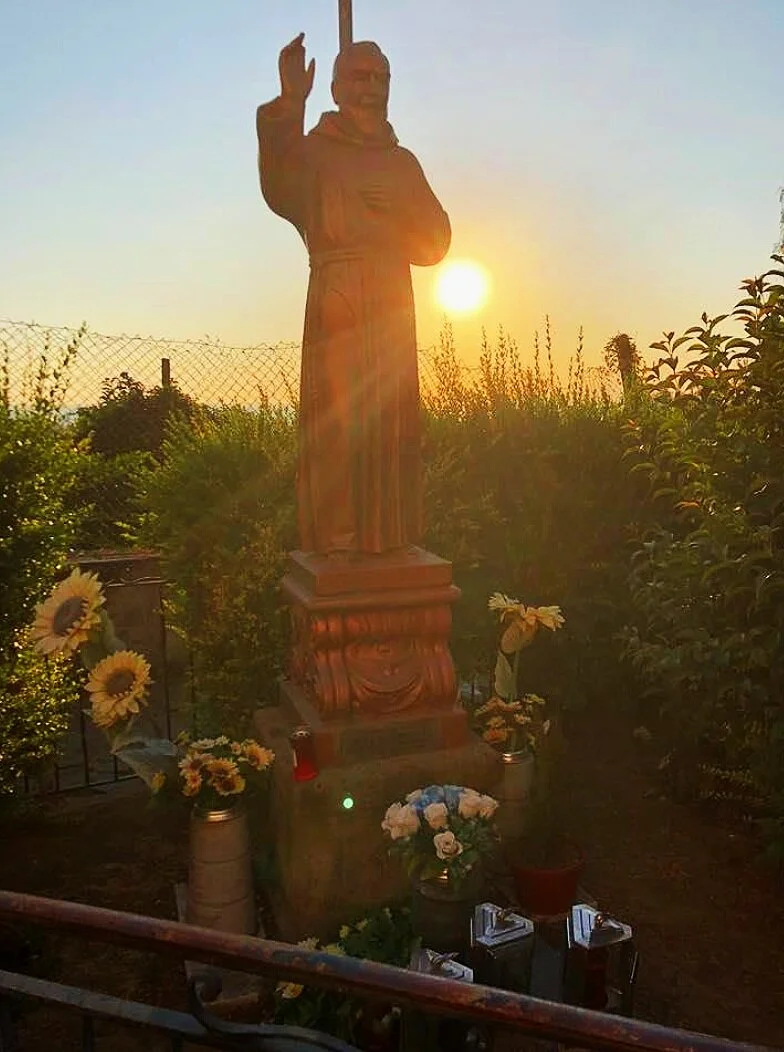BY LISA MARIE BASILE
Editor’s Note: This was first published in Ritual Poetica
LISA MARIE BASILE
My grandmother — or nonna — was born Concetta Maria Lipari. She went by the name Mary, at least in the United States. She emigrated with her sisters, by sea, from Palermo, Sicily.
“I saw Mussolini’s men under the lemon trees,” she told me once when I was in my mid-twenties. It would be one of the last times I saw her, her wrinkled hands held in my father’s palms. I was too young, too distracted, and too naive, to ask her for more memories.
The idea of her living under that regime becomes more real to me as I grow older, wiser, and more interested in how identities and places change due to oppression and ideology. How Sicily was ruled and conquered more than anywhere else, how all that change, fear, culture, and belief exists in my blood today. How it shows up in America, too. The salt and all the tides of time. And how we reckon with it.
I also think of the lemons. Those beautiful bright gifts from heaven; how, years after her death, I’d step foot onto Italian soil to taste their sweetness, to wander limoncello-drunk down Duomo steps and through piazzas and little streets. I started in the North on Lago Maggiore and made my way down through Naples to the Amalfi Coast. I still haven’t tasted Palermo, drank of my own blood.
There is magic in nature. In salt and lemon and water. And I think my grandmother knew this, although she wouldn’t refer to it as such. She was a devout Catholic — she’d go to church every day, maybe twice per day. She and my grandfather attended the Saint Gianna Beretta Molla Parish down in South Jersey, and when I attended both of their funerals, with the same funereal rites — the songs and smoke and procession — I felt that same intoxication I did as a child. I was again reminded of the power of ritual. The institution and its rites are overwhelming, luminous, frightening, and not a bit complicated. That tendency toward ritual, toward the magic and mysticism of action and intent, is etched into me. The primordial Paganism that was rewritten with fear and shadow — and yet I found some comfort in it.
I recall my grandmother doing a few things that bewildered me as a younger person. First, she pulled out a box of her own long, thick black hair — darker than my own — and waved it over our cake as we sat eating. My aunt promptly said, “Mom — we can put that away?!” But it was something about preserving her youth, reclaiming her power, keeping memories, staying safe. It was, I suppose, a spell of sorts. She lived well into her 90s.
LISA MARIE BASILE
My other memories are of altars and shrines — over the television, on shelves, in corners covered in embroidered cloth, candles, sacred images, tiny statuettes (one of which I took for myself, or was given; I can’t remember), crucifixion triptychs, figurines, vials, relics, holy water collected in old Cola bottles, taped with pictures of Jesus or the saints. I can almost evoke the scent of their home. Perfume, something dry and old, incense, the smell of the air in South Jersey—a specific mix of something and trees. It has all become mythology to me.
And upon the altars were scrolls — dozens of tiny scrolls, etched with prayers and blessings, wishes, and words in both Sicilian and in English. She’d slip the scrolls in between statues of saints and figurines, roll them up under hanging rosaries. Once, when I knew it was the end, I stole two of the papers. I felt she would forgive me. I wanted something of hers, something handwritten. Something beautiful. As a writer, it felt only right. Or perhaps that’s me romanticizing everything.
My grandmother wasn’t a warm woman. She had seven children and dozens of grandchildren — and she brutally picked favorites. The fear of God led her to judgment and cruelty in many ways, and we were not close for many reasons. As a child, she didn’t hold me in her lap or stroke my hair or care for me. She visited, we made dishes and dishes of food, she told me I was too skinny, and she sent me scapulars and bottles of holy water. She also warned me about the Devil and told me ghost stories. They were violent and strange and they haunt me today — the man who killed himself in her basement. The child swinging on a chandelier. The old woman dressed in black who came in and out of the house.
These stories were always told or spoken about at family dinners. The consensus was that Grandma Mary had ‘lost her marbles,’ or always been a bit off, that perhaps having seven children had worn her down. Perhaps it was emigration and a loss of her culture, assimilation, her marriage, the wars, or mental health issues. I think it is a mix.
LISA MARIE BASILE
But I am not so sure it wasn’t something else, too. Something divine or ghastly. I don’t know what I think of the afterlife, but I know my grandmother was tuned in to something. Some otherness. Some else-ness. She seemed to have existed in a magical realist realm. It seemed only loosely tethered to here and now. Of course, only in retrospect can you see these truths for what they are.
My mother, who isn’t Sicilian, always says, “You’re just like your grandmother Mary.” I can’t tell if it’s a good thing, but it’s a potent thing. I do have her pale olive skin, her dark hair. We are both water signs.
In this way, intuiting the power of the word was passed down to me. I now use scrolls on my own altars. I have been doing it before I knew I was doing it — before I thought of myself as a word witch or an alchemist of letters or a poet, and before I believed in anything at all.
I have always kept journals and wrote letters and I would throw wishes into rivers at a child. The writing felt Important to me. Performing poems aloud felt like I was achieving something, casting something out. Exorcising, incanting, making, even if I didn’t have the words for it nor the conscious cognisance of intention and belief.
I think of my grandmother’s use of scrolls as a Benedicaria, a (purposefully?) vague and recent term for Southern Italian or Sicilian traditions of blessings. Benedicaria is at its core Catholic, yet it operates without explicit language, without much ado. In Campania, where I traveled alone last year, it’s translated into do a little holy thing (Fa Lu Santuccio).
In my limited understanding, it is an innate, religious understanding of things you just do — in your house or with your family or in your kitchen. It’s intuited, not fancy, and detached from glossaries and definitions. It’s not stregheria, either. It’s something different.
It’s sacramentals and olive oil and warding off the evil eye. Saving hair and writing scrolls. It isn’t magical, and she wouldn’t want to see it that way. It’s just what you do.
Ironically, given this entire post and its emphasis on the Word, what my grandmother was doing — and what I do — doesn’t have a specific name. I may call it magic or witchcraft, and she may have called it prayer (especially writing in her mother tongue, which was, in many ways, taken from her). But it’s just what feels natural.
Writing is part of who I am. It is my sacredness and my profanity. My prayer and my craft. My impact, my wound, and my reclamation. A product of a divinity or a call to it. An ancestral power that I’ve tapped into, but one that feels, somewhat, on loan to me. I am a recipient of a message. I am a vessel. Maybe it comes from a God, or a saint. Maybe it comes from history’s echoes, some sort of ancestral hum. Maybe it’s a gene. Maybe it is a gift. Or maybe not at all.
I will fill my own life, and this world, with a sea of letters, stained by lemon and sunlight, and hope that it washes something beautiful to shore. It’s just a holy little thing, writing. It creates something from nothing. It’s my meaning. It is my thank you to existence.
Lisa Marie Basile is the founding creative director of Luna Luna Magazine, & the author of a few books of poetry and nonfiction, including Light Magic for Dark Times and The Magical Writing Grimoire. She's written for or been featured in The New York Times, Entropy, Grimoire Magazine, Sabat Magazine, Giallo Lit, Catapult, The Atlas Review, Best American Experimental Writing, and more.


































